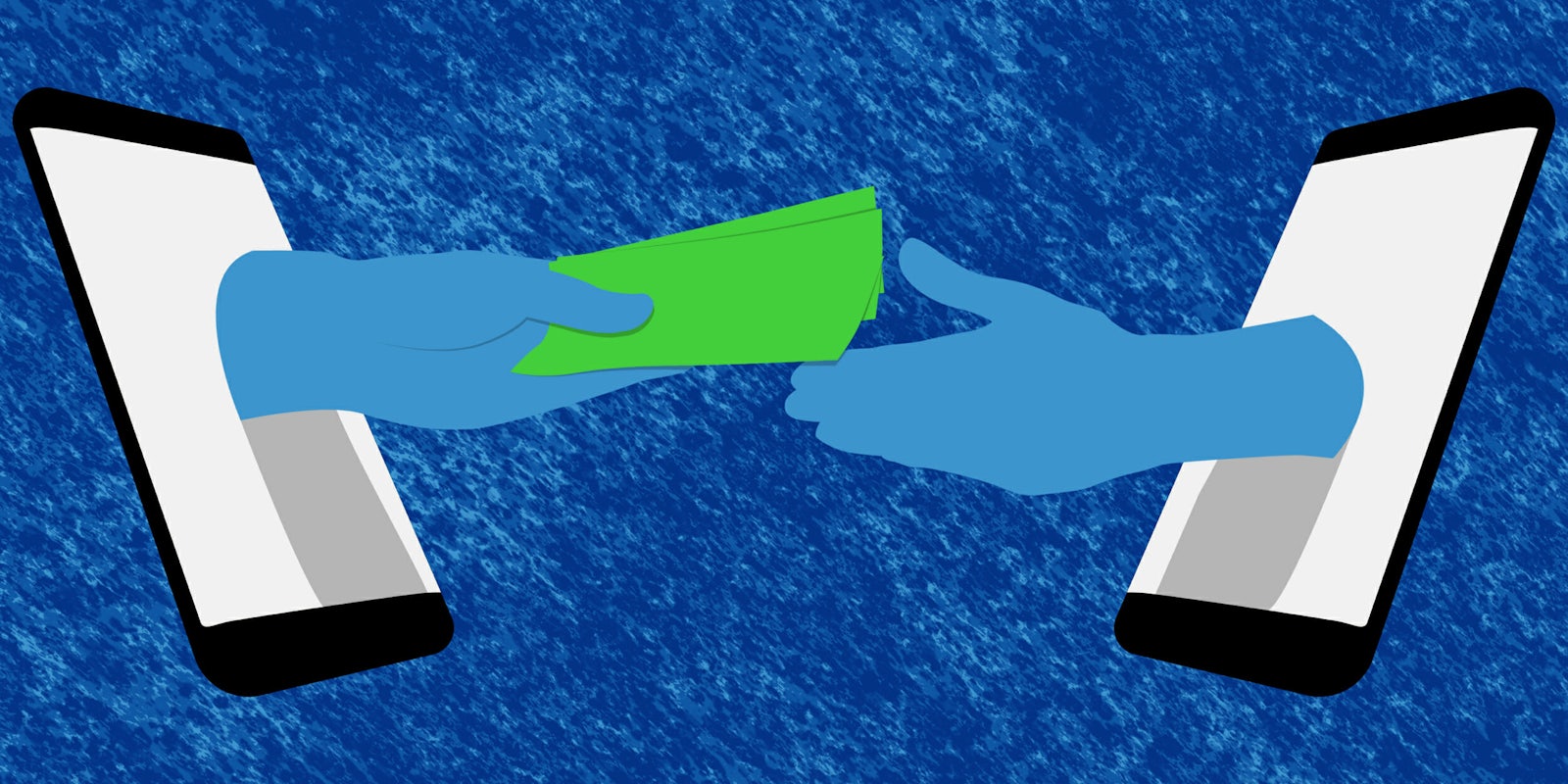Venmo is holding up payments for review that include “Persian” in the description, according to several users in New York.
Monna Sabouri, who shared her experience in a Facebook post, said she had Venmo’d a friend who had paid the dinner bill after a group of them had gone to a Persian art exhibition and then a Persian restaurant. She sent the payment with the description “Persian shinanaganz,” and Venmo had held it up for “review.”
Other people’s payments from the group were processed, she said, but hers was held back. “I first laughed it off, then cried a bit then pulled myself together,” she said. Sabouri had been aware of anecdotes where payment descriptions that include “Iran” were flagged for review but didn’t expect “Persian” to be flagged.
When she wrote an email to Venmo, screenshots of which she shared with the Daily Dot, the Venmo representative asked what she meant by “Persian shinanaganz,” and told her he wanted to see “documentation” of the transaction, such a sales receipt, and would also like a “detailed explanation” of what she “intended to pay for” in this transaction.
The incident surprised Sabouri since Venmo is known for being an incredibly casual platform. In fact, that’s why it’s such a hit among millennials and why similar platforms such as Google Wallet or PayPal, which is owned by the same owners as Venmo, haven’t caught up with Venmo’s popularity: It’s quick, easy, and fun to use. You send someone a payment and include a short description of what it’s for; many simply use emoji.
But that ease comes with a price, apparently. In 2017, Raihan Faroqui, a resident doctor, also tried to make a payment on Venmo to his friend after eating at a Persian restaurant. His description aptly read “Persian” and was also flagged.
Faroqui received an email demanding similar answers to Sabouri’s, such as an explanation of “Persian” and details of what the intention of the payment was. It eventually took three days for the payment to process, he told the Daily Dot, adding that he’s “never had a Venmo transaction reviewed like this.”
Sabouri—along with Ayisha Irfan, an NYC-based organizer—is now planning to write a petition to Venmo and PayPal. “The ask is pure and simple: to remove ‘Persian,’ a culture/ethnicity/a people, as something that gets flagged.” Irfan added that such practices are “essentially asking [people] to erase themselves.”
In a follow-up Facebook post, Sabouri called on friends to make a $1 payment to her Venmo account with the word “Persian shenanigans” in the description, to test whether they would process.
At least 10 people shared screenshots of their payments being under review when they wrote “Persian shenanigans” or “Persian shinanaganz.” One person shared their payment was under review when they wrote “Muhammad” or “Quran” in their description. Interestingly enough, when others wrote anti-Semitic terms and illegal goods like “cocaine,” they weren’t flagged, according to screenshots obtained by the Daily Dot.
Not all “reviewed” payments were held back, however. Sabouri clarified that the payments were eventually processed and not completely blocked. “Did it and no review,” commented a man named Jason Williams on her status. “Maybe it’s a combination of a middle-eastern name AND specific phrasing in the payment?”
In an email statement to the Daily Dot, Venmo said the review process is part of their compliance with U.S. economic and trade sanctions administered by the U.S. Department of the Treasury’s Office of Foreign Assets Control (OFAC).
“We’re always working to make it easy for people to send and receive secure payments to and from those they trust,” Venmo said, adding that “customer transactions are sometimes delayed when certain words in payment descriptions trigger regulatory alarms.”
Sabouri disagrees with this policy. “Venmo is not an entity of the U.S. government, and should not harass its customers.”
She added: “I really do believe this is to dehumanize people, [especially] who are Iranian or Persian. It’s ridiculous that PayPal, a company that’s what 20 years old is blocking a payment of ‘Persian,’ a thousands-year-old civilization. Who are you to block a payment that says ‘Persian’?”


